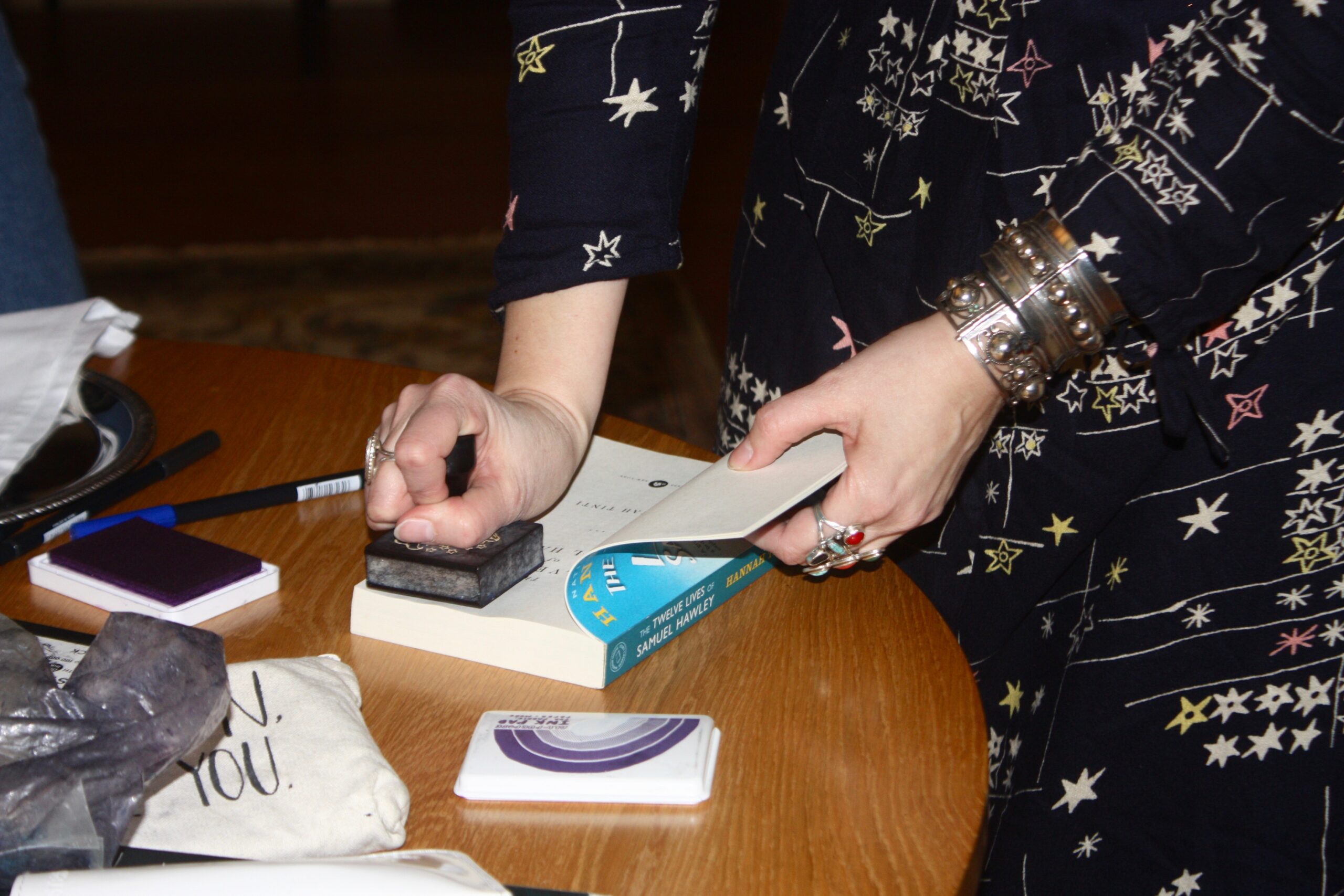Author Hannah Tinti talks fiction and storytelling
February 22, 2019
 Lauren Caffe
Lauren CaffeThe audience snapped their fingers in unison on Tuesday as Hannah Tinti began singing. The author of three critically-acclaimed novels, Tinti knows how to captivate an audience. Singing, she says, does just that.
Tinti, who was at Bowdoin as part of the Alpha Delta Phi Society Visiting Writers Series, read from her most recent best-selling novel, “The Twelve Lives of Samuel Hawley.”
It’s not Tinti’s first time receiving critical acclaim. Her 2008 novel “The Good Thief” received the First Novel Prize from the Center for Fiction, and her 2004 collection of short stories, “Animal Crackers,” was a runner-up for the PEN/Hemingway Award. Tinti is also the co-founder and executive editor of One Story, a literary magazine dedicated to the short story form, and she teaches fiction writing at New York University.
Born and raised in Salem, Massachusetts, Tinti grew up among the same setting in which her characters reside. Tinti’s novel weaves the story of Samuel Hawley’s 12 scars, written in “Bullet” chapters that tell how he received each gun wound with the present-day teen struggles of his daughter, Loo. The book is both a gripping mystery and a coming-of-age story—a cross-genre masterpiece.
After Tinti witnessed the Greasy Pole Contest—a competition in which contestants traverse a greased pole that is suspended over a body of water and attempt to claim a flag tethered at the other end—she knew a story set in a rough-and-tough fishing village would come naturally to her.
Tinti said her stories often begin with something familiar and start to unfold as she visualizes a scene and a character. The process for her becomes about “rewriting.”
“The first draft, you’re just kind of vomiting on a page, and then you have to take that vomit and turn it into something that maybe someone else would want to look at,” said Tinti.
She likened the process to her childhood habit of recounting dreams to her family members.
“Nobody wants to listen to [me],” she said. “Editing takes that overwhelming feeling that could come from your dreams and finesse it so that someone would want to experience your dream.”
Aside from the editing process, Tinti confessed that, like any writer, building up confidence in her writing projects is certainly a challenge. Even as an established author, Tinti nonetheless faces struggles whenever a new project comes along.
“It just feels completely overwhelming, and [you feel] like you’re never going to be able to do it. Finding something that makes you feel excited enough to push past that insecurity is difficult. Once I actually have the material, I’m good at shaping [the story],” Tinti said.
The key, Tinti revealed, is patience and allowing the piece to flow by itself.
“Oftentimes, when I’m at the beginning of the project and my attention keeps drifting, I’ll set it aside and start working on something else. It’s just not quite there for me yet,” said Tinti.
Whether it’s writing a novel or reading another author’s work, Tinti believes that timing is vital. The first time Tinti read “Les Misérables” at 15, she found herself underwhelmed. However, when she picked up the book again at 26, she fell in love with it.
To Tinti, the connection between books and readers is extremely powerful. Books provide a sanctuary for the reader, she explained, and connect with them in a mutual transformative experience.
This is why empathy and attention are at the heart of Tinti’s practice. She compares her writing process to zooming on a single character’s life with binoculars—noticing the small details, like how a character drinks their coffee.
“We become writers because we notice things that other people don’t,” she said. “We are observers. We are watchers. That’s powerful.”

Comments
Before submitting a comment, please review our comment policy. Some key points from the policy: